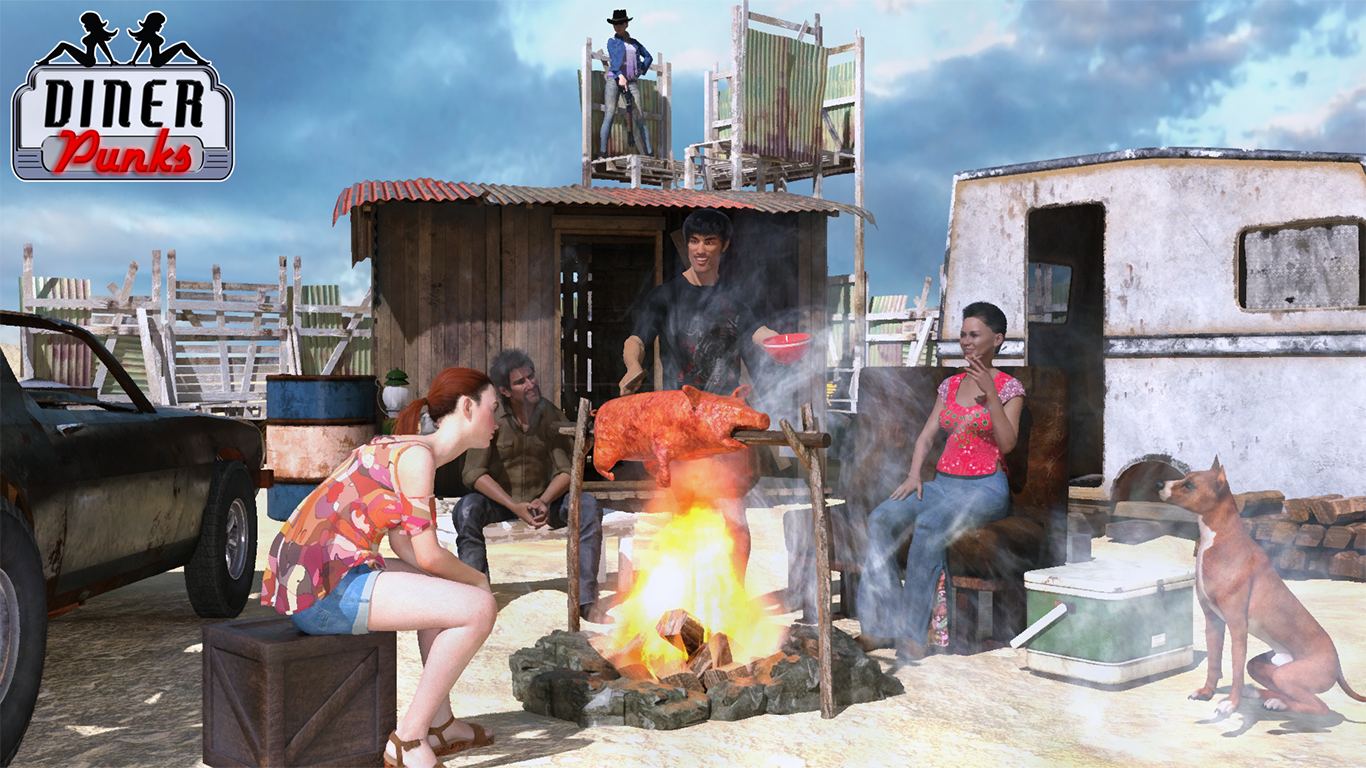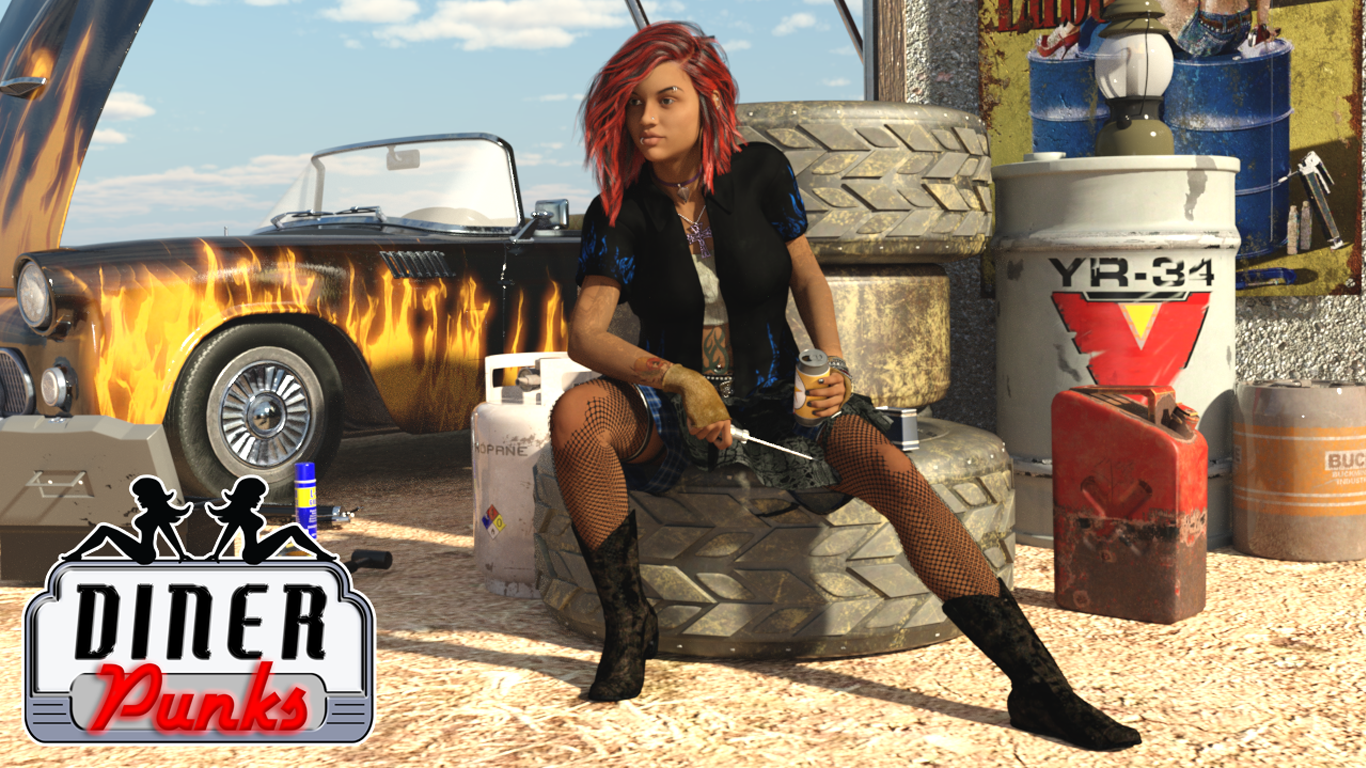We may earn money or products from the companies mentioned in this post.
I realize now that I didn’t mention this back in November, but the lack of new posts for the last month and change was intentional. Between Thanksgiving and New Year’s, everyone’s busy, in a food coma, pissed off, depressed, or drunk–sometimes all of them at the same time–so I don’t want to write a blog and you probably don’t want to read a blog. I’ll be posting weekly again now that all that nonsense is over, but the day of the week may change. I’ve recently been working toward my life’s goal of earning an income in a way that doesn’t require dealing with middle managers or putting on pants, but I’m still trying to get the routine down so updates might be random for a while, but they’ll be weekly.
I promise I’ll get to something resembling a topic soon, but first a few updates. Don’t worry, I’ll carefully ignore even mentioning our dearth of new releases in 2014 and the fact that M-Force still isn’t finished, except to say that we’re working on stuff and will release it when it’s done. Also, Carter’s Hobomancer novel, Suicide’s Run, is coming very soon and is very good. Unless you’re a heartless monster who despises all that is good and decent, you’ll want to read it.
Also, I’m re-starting the series of role-playing articles at Hub Pages that I started a few years ago but got distracted from. I’ve cleaned up and edited the older articles a bit and posted the first new article, which you can read (and upvote and comment on) here. The articles are mostly general, basic stuff geared toward new role-players, but hopefully they’re thorough enough to give even old hands a few ideas. I plan to post new articles there monthly-ish.
And I’m not the only one who’s back to blogging about QAGS. Brian over at The Gnomish Embassy has recently posted two new QAGS-specific entries, one about his plan to run QAGS Blackmoor and one with some tweaks for blunt weapons to make them a bit more desirable. In addition to pointing out some QAGS-related articles that readers might find interesting, I’m mentioning Brian’s blog here because of something he said in the Blackmoor article: “I’m not sure if I’m committing some kind of sin amongst the old guard by mixing my Blackmoor with ‘Storygames’…”
Story game? QAGS? I’m not sure that I completely agree with that, at least based on my gut feeling about what constitutes a story game. My impression of the meaning of “storygame” may differ from the generally-accepted definition. I’ve only had limited experience with the genre, so it’s possible that the things I think of as identifying characteristics of story games are specific to the handful of titles I’ve played or read about. While I do think QAGS is a different kind of thing than traditional RPGs, I’m not sure it’s a story game. In my classification system (which I entirely made up just now, so it may not have anything to do with what gamers, game theorists, other game designers, and big game hunters think), there are three general types of RPG-like games:
Traditional RPGs we all know about. It I had to pick one trait that defines this type of game, it’s that the game is defined by system. The system determines what kinds of characters you can play, what they can do, and to some extent what kind of stories you can tell. This is in part because traditional RPGs tend to provide very specialized rules for the things that are common in the genre covered by the game, which makes it more difficult to apply the system to unusual situations. As a result, both players and GMs mostly avoid situations that aren’t covered by the rules. Traditional RPGs mostly focus on action resolution and usually have a strong “GM vs. Player” element, even though they claim they don’t. Since the rules take center stage, a lot of the story comes from the GM and players trying to bend the rules in ways that give them an advantage.
Story games, as the name implies, try to put the story front and center, in part by making the mechanics simpler and less crunchy and, usually, providing strong core mechanics that can be applied to a lot of different situations. That definitely sounds like QAGS, but there are some other aspects of (my understanding of) story games that make me shy away from the name. One is that system is still very central to the way the games are played. The main difference is that where traditional RPGs focus on numbers, story games focus on words. While words usually leave more room for interpretation than numbers, there’s still a sense that everything needs to be quantified in terms of the system. The main difference is that instead of rolling against your character’s Dexterity score, you Immanetize your character’s Dexterity Eshaton or Activate his Cat Chakra or some damn thing. There’s still a lot of rules fuckery going on, it’s just hidden under a blanket of (often very precise) jargon. Because it still boils down to rules, story games also have an adversarial feel, and in some cases it’s formalized. In fact, one trait common to many story games I’ve seen is that the rules don’t determine what happens in the game, they determine whether the GM or the player gets to narrate the outcome, which indirectly implies that the GM and player and opposing goals. So basically story games, as I see them, are just traditional RPGs with an added layer of abstraction that makes them favor English nerds over math nerds.
Freeform: This is where I’d put things like Fiasco, Pantheon and Other Role-Playing Games, The Extraordinary Adventures of Baron Munchausen, and maybe Once Upon A Time (at least when nobody cares who wins). There are some rules, but they’re mostly there to serve as inspiration and provide snags that keep the stories from getting boring. Many freeform games don’t have a GM, so adversarial relationships are limited to in-character rivalries and opposing story goals. While the lack of structure can be an advantage, it can also be problematic for some people. As I might have mentioned before, I know one guy that can crank out a D&D character in 20 minutes but takes weeks to make a QAGS character because he’s used to having a list of pre-defined options to choose from; being told he can choose anything that works for the game and his character has a deer in headlights effect on him. The other problem with freeform games is that, for reasons I haven’t quite figured out, most freeform games don’t make for good campaign play. Some (like Munchausen and Once Upon A Time) just aren’t really designed for it. As for the others, my best guess is that it has something to do with the lack of structure, the lack of clear character definition, or just the fact that the freedom of freeform games means they tend to go from zero to batshit crazy epic in the first session, so by the end or the first session most of the characters are either dead (Fiasco) or gods (Pantheon).
QAGS, of course, has too many rules to be considered a freeform game, but that’s the type it most resembles in actual play (at least as GMed by most people I know). Like in freeform games, the goal is for everyone involved to have fun telling a good story (which, contrary to what the “Rules Mastery” crowd seems to believe, is not the same thing as a story where everything goes the characters’ way). The rules aren’t there to provide the GM and players with ways to outsmart or outplay each other, they’re there to provide some structure, add an element of randomness to make things more interesting, and settle conflicts about which direction the story should take. The rules aren’t there to drive the story, they’re there for when the story stalls. In fact that gives me a tortured analogy: In traditional RPGs and story games, the rules are the wheels; In QAGS, the rules more like jumper cables. I think that means that in freeform games you’re riding a magic carpet or broomstick or something.
So what is QAGS? Hell if I know, but I don’t think of it as a story game. It’s also not a traditional RPG or a freeform game, and I don’t know of anything else to call it. If anybody’s got a good suggestion–especially a highly-marketable one that we can advertise as a bold new era of gaming (that’s only been going on since 1998)–please let us know. As our writers, artists, and staffers can tell you, we offer a comprehensive “nickels and gratitude” compensation package.





